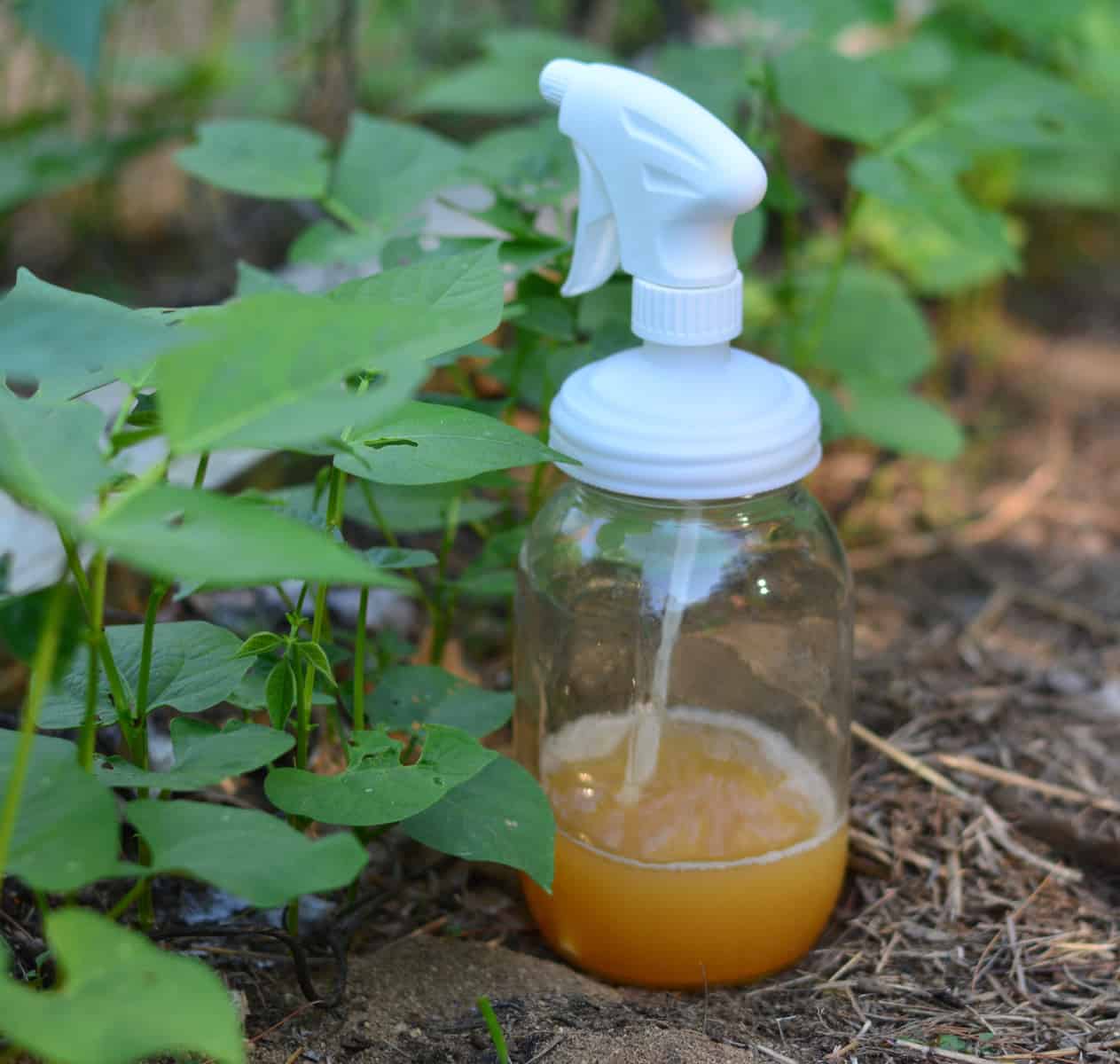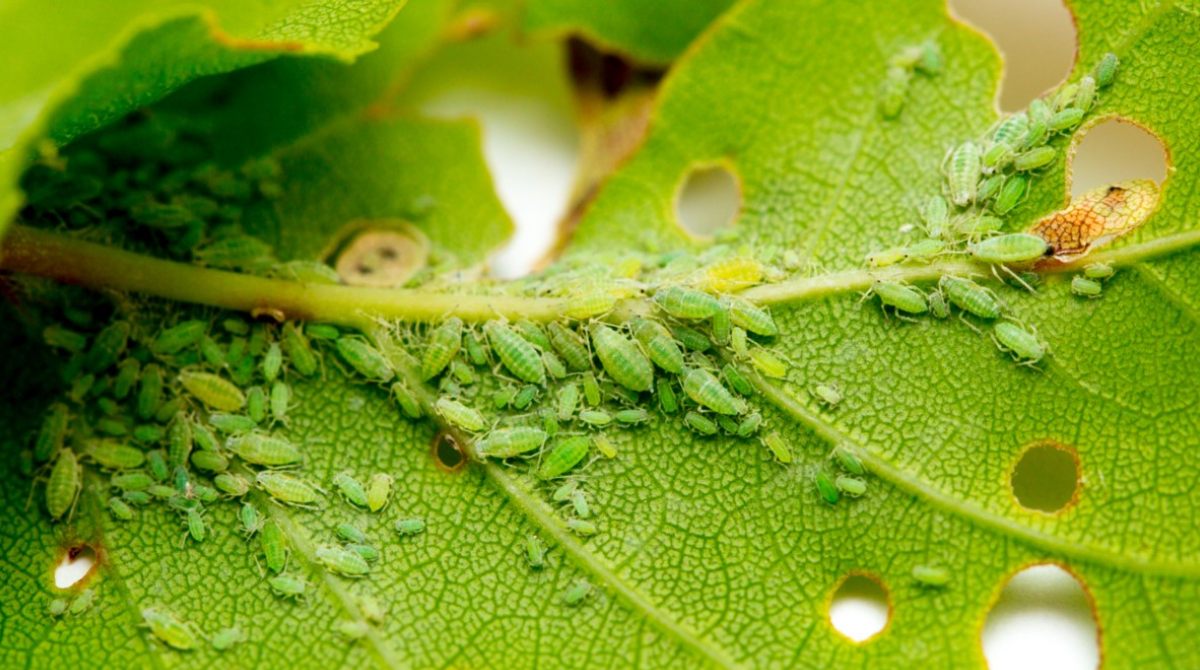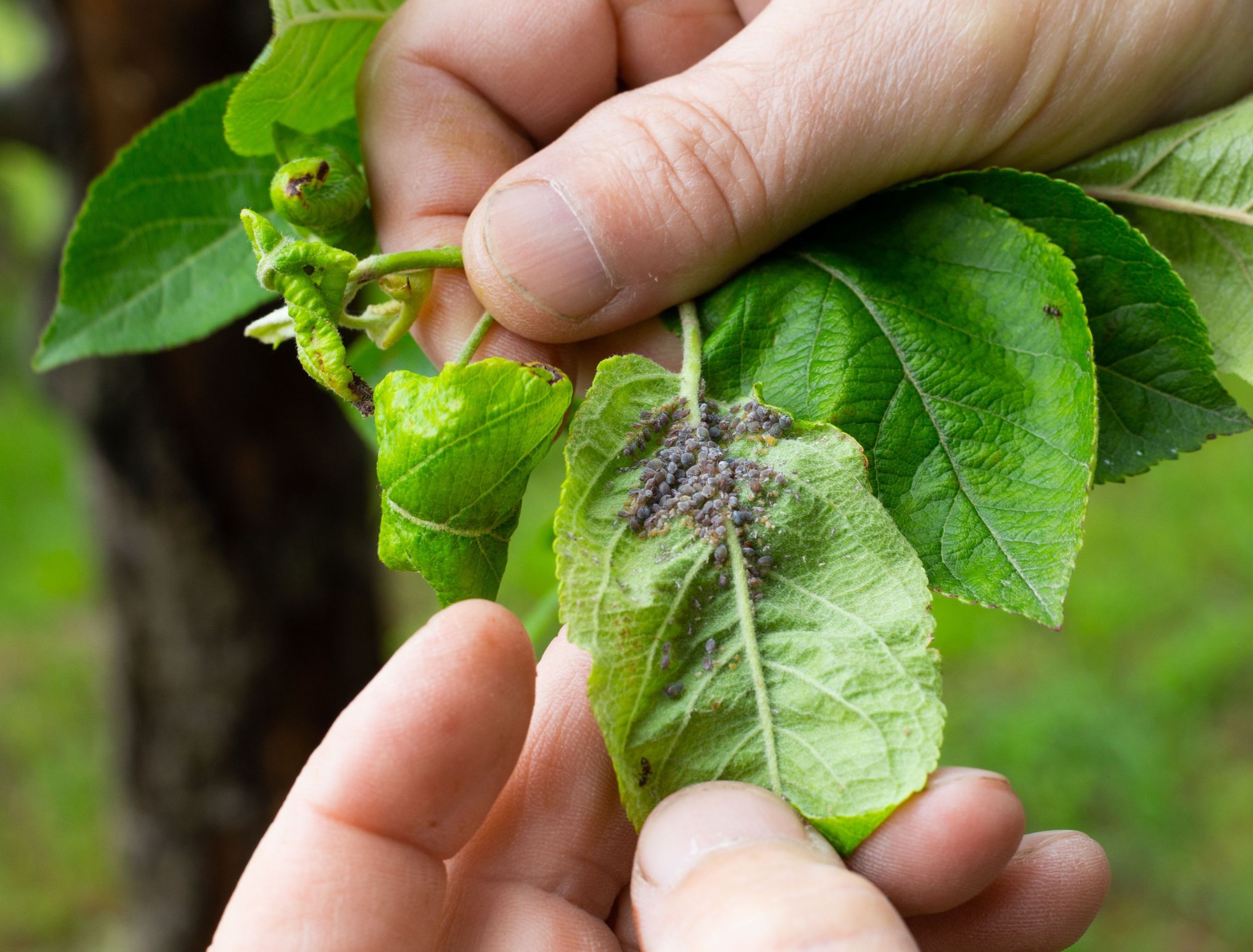Effective Solutions: What Will Remove Aphids?

Aphids can be a gardener's nightmare, wreaking havoc on plants by sucking their sap and spreading diseases. These tiny pests can rapidly multiply, leading to significant damage if not addressed promptly. Effective solutions to remove aphids are essential for maintaining healthy gardens and crops. From natural remedies to chemical treatments, there are numerous strategies available to combat these invasive insects. In this article, we will explore various methods to eliminate aphids efficiently, ensuring your plants thrive. Whether you're a seasoned gardener or a novice, understanding how to tackle aphid infestations will empower you to protect your green spaces effectively.
What Will Remove Aphids?
Aphids can be a significant nuisance in gardens and on houseplants, as they feed on plant sap and can transmit diseases. To effectively remove these pests, it's important to use a combination of methods which may include introducing natural predators like ladybugs, using insecticidal soap, or applying neem oil. These approaches not only help in eliminating aphids but also minimize harm to beneficial insects. Regularly monitoring your plants and maintaining their health through adequate watering and fertilization can also strengthen them against aphid infestations.
Natural Predators
Introducing natural predators such as ladybugs and lacewing larvae can be one of the most effective ways to control aphid populations. These insects feed on aphids, significantly reducing their numbers without the need for chemical treatments. By creating an environment that encourages these beneficial insects, gardeners can establish a natural balance that keeps aphid populations in check.
Insecticidal Soap
Insecticidal soap is a popular and environmentally friendly option for removing aphids. This solution consists of natural plant oils combined with soap, which works by suffocating the aphids upon contact. It's safe to use on most plants and breaks down quickly, making it a good choice for organic gardening practices. Ensure to cover all surfaces where aphids are present for the soap to be effective.
Neem Oil
Another effective solution is the application of neem oil, which is derived from the seeds of the neem tree. Neem oil works both as a pesticide and a fungicide and disrupts the life cycle of aphids, preventing them from feeding and reproducing. It's important to dilute neem oil properly and apply it in the evening or early morning to avoid harming beneficial insects that are active during the day.
Water Spray
A strong water spray can also help dislodge aphids from plants effectively. Using a hose, gardeners can wash off the aphids, especially if the infestation is not severe. This method is quick and chemical-free, and it can be repeated as often as necessary to keep aphid populations under control. However, it may need to be followed up with other methods for persistent infestations.
Companion Planting
Implementing companion planting is another preventative strategy for managing aphids. By planting certain herbs and flowers that repel aphids, such as marigolds or chives, around more susceptible plants, you can create a barrier that discourages aphids from settling in the first place. This method not only helps keep aphids away but can also enhance the overall health of the garden ecosystem.
| Method | Description | Effectiveness |
|---|---|---|
| Natural Predators | Introduce beneficial insects like ladybugs. | High |
| Insecticidal Soap | Spray solution to suffocate aphids. | Moderate to High |
| Neem Oil | Disrupts life cycle of aphids. | High |
| Water Spray | Dislodges aphids with pressure. | Moderate |
| Companion Planting | Plants that repel aphids. | Moderate |
What is the best homemade aphid killer?

The best homemade aphid killer can be effective, safe for plants, and easy to prepare using common household ingredients. Here is a detailed approach to some of the best methods for combating aphids naturally.
What Ingredients Work Best?
Homemade aphid killers typically use natural ingredients that are effective yet gentle on plants. Here are some of the most used substances:
See also:
- Dish Soap: A simple solution of water and a few drops of dish soap can suffocate aphids. The soap breaks down their outer waxy layer.
- Neem Oil: Derived from the seeds of the neem tree, this oil disrupts the hormones in aphids that regulate their growth and reproduction.
- Garlic: Garlic’s potent smell acts as a repellent, making it less attractive for aphids and other pests.
How to Make a Soap Solution?
Creating a soap solution is one of the easiest and most effective methods for killing aphids. Here’s how to do it:
- Mix about 1 to 2 tablespoons of dish soap in a quart of water.
- Pour the mixture into a spray bottle.
- Thoroughly spray the affected plants, ensuring to cover the undersides of leaves where aphids often hide.
Using Neem Oil for Aphids
Neem oil not only kills aphids but also acts as a long-term repellent. The following steps outline its use:
- Mix 2 tablespoons of neem oil with a gallon of water.
- Add a few drops of dish soap as an emulsifier to help the oil mix properly.
- Spray this solution on infested plants every few days until the aphids are gone.
The Garlic Spray Method
Garlic spray can deter aphids naturally while also being beneficial for your plants. Here’s how to create it:
- Chop up several cloves of garlic and add them to a quart of water.
- Let the mixture sit overnight to infuse the water with garlic essence.
- Strain out the garlic pieces and pour the liquid into a spray bottle; spray on the affected areas.
When to Apply Homemade Solutions?
Timing is crucial for the effectiveness of homemade aphid killers. Here's what to consider:
- Apply solutions during cooler parts of the day, such as early morning or late afternoon, to prevent leaf burn.
- Reapply every few days and after a rainfall for prolonged protection.
- Monitor your plants regularly to catch new infestations early.
What is the most effective treatment for aphids?

The most effective treatment for aphids combines a few approaches for optimal control. These small sap-sucking insects can damage plants by feeding on their juices, leading to wilting and reduced growth. Here are some of the best methods to treat an aphid infestation:
Natural Predators
Using natural predators is one of the most sustainable methods to control aphids. Introducing beneficial insects like ladybugs and lacewings can significantly reduce aphid populations.
- Ladybugs: These insects are voracious aphid eaters and can consume large numbers in a short time.
- Lacewings: Known as aphid lions in their larval stage, lacewing larvae feed on aphids and are effective in controlling their numbers.
- Parasitic Wasps: Certain wasps lay their eggs inside aphids, ultimately killing them. This method is highly effective for larger infestations.
Insecticidal Soaps
Insecticidal soaps are another effective treatment for aphids, as they disrupt the cellular structure of the insects by suffocating them.
- Organic Materials: Made from plant oils and fats, insecticidal soaps are safe for most plants and do not harm beneficial insects when applied correctly.
- Application: It's crucial to cover all parts of the plant, especially the underside of leaves where aphids frequently hide.
- Frequency: Reapply the soap solution every few days until the aphid population is under control.
Neem Oil
Neem oil is derived from the seeds of the neem tree and is effective against aphids due to its insecticidal properties.
- Active Ingredients: Neem oil contains azadirachtin, which disrupts the growth and reproduction of insects, preventing them from maturing and reproducing.
- Application Methods: When mixed with water and a mild soap, neem oil can be sprayed directly onto infested plants.
- Safety: It's important to note that neem oil is safe for humans, pets, and beneficial insects when used appropriately.
Homemade Remedies
Several homemade remedies can be effective in treating aphid infestations, providing a cost-efficient solution.
See also:
- Garlic Spray: Mixing crushed garlic with water creates a natural insect repellent that can deter aphids.
- Dish Soap Spray: A mixture of water and a small amount of dish soap can suffocate aphids when sprayed onto them.
- Hot Pepper Spray: Combining hot pepper flakes with water makes a spicy spray that can deter aphids.
Cultural Practices
Implementing appropriate cultural practices can help in preventing aphid infestations as well.
- Crop Rotation: Rotating crops can break the life cycle of aphids, making it harder for them to establish a population.
- Healthy Plants: Keeping plants healthy through proper watering and fertilization can make them less susceptible to aphid infestations.
- Avoiding Overcrowding: Spacing out plants properly can improve air circulation and reduce humidity, making the environment less favorable for aphids.
Does vinegar really kill aphids?

Vinegar is often touted as a natural remedy for various garden pests, including aphids. The effectiveness of vinegar in killing aphids can be attributed to its high acidity, which can disrupt the pests' protective outer coating and cause dehydration. However, it is essential to understand that vinegar might not be a complete solution for an aphid infestation, as it can harm beneficial insects and plants if not used carefully.
Understanding Aphids
Aphids are small, soft-bodied insects that feed on the sap of plants, which can weaken the plants and lead to stunted growth. They reproduce quickly and can form large colonies, making them a common pest in gardens. Here are some key points about aphids:
- Reproduction: Aphids can reproduce asexually, which means they can quickly increase in population without needing a mate.
- Feeding: They primarily feed on the sap of plants, which can result in yellowing leaves and curling foliage.
- Transmission: Aphids can transmit plant diseases due to their feeding habits, further complicating plant health issues.
Vinegar Composition and Its Effects
Vinegar is primarily composed of acetic acid, typically ranging from 4% to 8% concentration in household vinegar. This acidity is potent enough to affect many pests, including aphids. Important aspects include:
- pH Level: The low pH level of vinegar can disrupt the cellular structure of aphids, leading to dehydration.
- Contact Kill: Vinegar is most effective when it directly contacts the aphids; otherwise, it may not penetrate their protective coating.
- Potential Harm: The high acidity can also harm plants and beneficial insects if not applied judiciously.
How to Use Vinegar Against Aphids
To effectively use vinegar for controlling aphids, proper application techniques are crucial. Here’s a guide for application:
- Dilution: Mix vinegar with water, typically a solution of one part vinegar to three parts water, to reduce the risk of harming plants.
- Spraying: Use a spray bottle to directly apply the solution onto the aphids, ensuring full coverage for maximum effectiveness.
- Frequency: Repeat applications every few days, especially after rainfall, to maintain efficacy against new aphid populations.
Effects on the Environment
While vinegar can help control aphids, it is essential to consider its impact on the overall ecosystem in your garden. Critical factors include:
- Beneficial Insects: Vinegar can kill not only aphids but also beneficial insects such as ladybugs and bees, which help maintain garden balance.
- Plant Health: Over-application of vinegar can lead to plant burn and damage, especially for sensitive species.
- Soil Impact: Excessive vinegar use can alter soil pH and affect the microbial ecosystem necessary for healthy plant growth.
Alternatives to Vinegar for Aphid Control
If you're concerned about the potential drawbacks of using vinegar, several natural and less harmful alternatives exist for managing aphid populations. Consider these options:
- Insecticidal Soap: A solution made from fatty acids that targets aphids while being safe for plants and beneficial insects.
- Neem Oil: Derived from the seeds of the neem tree, neem oil disrupts aphid life cycles without harming beneficial insects.
- Companion Planting: Introducing plants that repel aphids, such as marigolds or garlic, can naturally reduce their populations in your garden.
Questions from Our Readers
What are some natural remedies to remove aphids?
To remove aphids naturally, try using a mixture of water and dish soap sprayed directly on the affected plants. This solution suffocates the aphids, making it an effective and eco-friendly option. Additionally, introducing natural predators such as ladybugs can help control aphid populations.
Can neem oil help in getting rid of aphids?
Yes, neem oil is a powerful organic pesticide that can effectively eliminate aphids. When sprayed on the plants, it disrupts the aphids' feeding and reproductive processes, leading to their decline. It's advisable to apply neem oil in the early morning or late evening to avoid harming beneficial insects.
See also:
Is it possible to get rid of aphids using garlic?
Absolutely, garlic can be used as a natural repellent for aphids. By crushing a few cloves and mixing them with water to create a spray, you can effectively deter aphids due to the strong scent. The allicin compound in garlic acts as a natural insecticide, making it an excellent choice for plant protection.
What chemical treatments are effective against aphids?
Chemical treatments like insecticidal soap and pyrethroid insecticides are highly effective against aphids. These treatments work by breaking down the protective waxy layer on aphids, leading to their dehydration and death. However, it's important to follow the application instructions carefully to minimize harm to beneficial insects and the environment.

If you want to read more articles like Effective Solutions: What Will Remove Aphids?, we recommend you check out our Insects category.
Leave a Reply
Related Articles